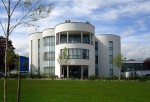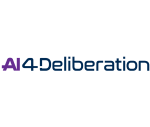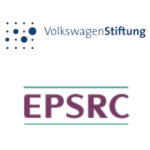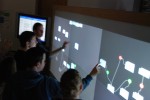
The Centre for Argument Technology is now recruiting one further postdoctoral research assistant and one PhD student in connection with a new EPSRC-funded project on Argument Mining working in collaboration with IBM.
Postdoctoral Research Assistant in Computational Linguistics
Grade 7 (£30,434 – £37,394)
Fixed Term 36 months
Applications are invited for a research assistant to work on an EPSRC-funded project in computational linguistics and argumentation. The Argument Mining project aims to develop a range of techniques in computational linguistics to exploit theories of argument structure and classical rhetoric in order to automatically identify human reasoning in unconstrained natural language texts. The project involves two commercial partners: one a local tech company, the other, IBM and the Watson team in particular.
Argument Mining – automatically extracting the structure of reasoning from text – is an exciting and rapidly expanding area of computational linguistics and text analytics. Two years ago there were fewer than a dozen papers in the area; since then, there have been five international events, hundreds of papers, and at least 20 research groups around the world gearing up to tackle the problem. The Centre for Argument Technology is playing a key role in this field, providing not only significant theoretical advances but also some of the most widely used software tools and datasets.
Building the theory in the project will demand an exceptionally high calibre individual who can develop an understanding of, and then balance not only statistical and machine learning techniques from computational linguistics with theories developed in the humanities for describing argument and rhetoric, but also the competing demands of rigorous theory with practical system-building.
A PhD in an appropriate area is essential, as is experience with techniques in linguistics or computational linguistics. Exposure to linguistic or rhetorical models of argument, to discourse analysis or theories of structural linguistics, or to the theory of rhetoric would be a distinct advantage. For such broad-reaching interdisciplinary research, however, specific experience will be less important than academic aptitude.
The post will be held in the Centre for Argument Technology in the School of Science & Engineering at the University of Dundee. At the most recent REF, research in the discipline of Computer Science was rated third in Scotland, with 79% of its research rated world-leading or internationally excellent (4* or 3*). Dundee has been ranked amongst the top places in the world for scientists to work (The Scientist), and has one of the lowest costs of living in the UK.
The starting date for the 36-month post is negotiable in 2016; the project will start on 01 January 2016, and it will run for four years.
More information is available from the research group web site at http://arg.tech, and applications will be handled online at http://arg.tech/vacancy, or for more information, please contact Prof. Chris Reed. Closing date for applications is 27 November 2015.
Vacancy Reference Number: SSEN0004, School of Science & Engineering
PhD Studentship
RCUK Stipend (£14,057 tax-free in 2015/16)
Fixed Term 42 months
Applications are invited for a PhD studentship to work in the interdisciplinary area lying between computational linguistics and argumentation. The studentship is associated with the EPSRC-funded Argument Mining project which aims to develop a range of techniques in computational linguistics to exploit theories of argument structure and classical rhetoric in order to automatically identify human reasoning in unconstrained natural language texts. The project involves two commercial partners: one a local tech company, the other, IBM and the Watson team in particular.
Argument Mining – automatically extracting the structure of reasoning from text – is an exciting and rapidly expanding area of computational linguistics and text analytics. Two years ago there were fewer than a dozen papers in the area; since then, there have been five international events, hundreds of papers, and at least 20 research groups around the world gearing up to tackle the problem. The Centre for Argument Technology is playing a key role in this field, providing not only significant theoretical advances but also some of the most widely used software tools and datasets.
The PhD student will be able to explore theories of argument structure from linguistic and computational perspectives with a view to automatically extracting such structure. The work will involve working in one or more application domains, and could involve working with the commercial partners.
A basic understanding of linguistics or computational linguistics would be a significant advantage, whilst exposure to theories of reasoning, argument or critical thinking would be a benefit. Candidates would typically be expected to have, or be on track for, a first class honours degree or equivalent, or a distinction at Masters level.
The post will be held in the Centre for Argument Technology in the School of Science & Engineering at the University of Dundee. At the most recent REF, research in the discipline of Computer Science was rated third in Scotland, with 79% of its research rated world-leading or internationally excellent (4* or 3*). Dundee has been ranked amongst the top places in the world for scientists to work (The Scientist), and has one of the lowest costs of living in the UK.
The starting date for the 42-month PhD studentship is negotiable in 2016; the project to which the studentship is connected starts on 01 January 2016, and it will run for four years.
More information is available from the research group web site at http://arg.tech, and applicants should apply by sending a CV and covering letter to Prof. Chris Reed. Closing date for applications is 28 February 2016.












